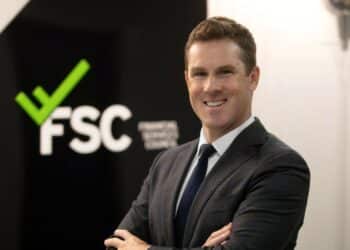According to the executive director of the Association of Independently Owned Financial Professionals (AIOFP), the “survivors” are going to be in great demand moving forward.
Mr Johnston blames the government for the exodus of 10,000 people from the industry.
But “despite their draconian and brutal approach”, Mr Johnston believes the government has done the survivors a big favour.
“When you break down and analyse the numbers of the circa 10,000 advisers who have left the industry so far, there is a golden lining for the survivors,” Mr Johnston said on Thursday (10 February).
“Around 8,000 were bank employees and accountants who had to decide on being an adviser or not, the remainder were independent advisers who either took the opportunity to retire or were spooked out of the industry with the government’s tactics.”
This, he said, has created a “very favourable supply and demand scenario for the survivors with new client opportunities”.
Moreover, Mr Johnston noted that if advice costs were to decrease, and given only 27 per cent of the population has an adviser, “advisers are going to be in great demand going forward”.
Reacting to predictions that a further 3,000 advisers could exit the industry within the next 12 months, Mr Johnston said the focus now needs to be on winning back some of the lost advisers.
“Bank advisers who were on the education pathway and the experienced risk and general advisers should reconsider their position. A moratorium of six months should be extended to these advisers to decide about re-joining under the previous regime,” the AIOFP head said.
“With the 10-year degree rule now agreed to by both sides of politics, we now need to get the FASEA exam format modified to suit its new purpose – not to kill advisers, just to make sure they are competent in their selected field.”
Mr Johnston hinted that the AIOFP will be advocating to ASIC and the government for a “more relevant format” with greater flexibility and better sitting conditions.
This includes seeking a new “positive curriculum” containing specific questions pertaining to an adviser’s area of expertise to demonstrate competency alongside the mandatory ethical segment in a simplified format.
AIOFP will also be pushing for a “verbal aptitude test”, which would allow advisers to respond to exam questions in a verbal format.
“In some cases, the more experienced advisers have not sat for an exam for decades and deserve to be extended some compassion and consideration,” Mr Johnston said.




Perhaps we could win these lost Advisers back with nil entry fee products, the promise of volume based payments, fully funded business costs, including nil or discounted licensee rates, interest free only loans, and trips to Fiji in addition to lower, but free education requirements. Apparently Mr Johnston loves to organize a conference at his favorite holiday destinations, so we’ll make them free too. We’ll tell these departed Advisers that Super switching is gone and SoA’s are reduced too. When they get back we’ll say “geez sorry mate youz mizunderstood me” Or we could just all move on and learn from the past and do honor to their past service.
Stupid liberal party
Given the alternative option is the party that will likely ban Financial Advisers I’m thinking the stupid party is closer to home.
I will never return. I’m a younger ex adviser and the stress is not worth the pathetic income.
Peter, please help the industry move forward. In a time when business need to be embracing technology, I am not sure bringing advisers that can’t sit a 3 hour exam is really the best approach.
Also not sure you realise, but teh FASEA exam is not about how much you know about financial planning. It is about whether you know the laws that we operate under. The things we need so that we can become a profession.
I think Peter may be prematurely counting his chickens on the 10 year degree rule. Both sides have made vague policy announcements on this issue, but neither have committed to a detailed position yet. Experience has shown there can be an enormous time delay and outcome difference, between a policy announcement and fully implemented legislation.
Agree,
These are planners who are not prepared to do the necessary study to stay a financial planner and increase the perception of financial planners.
They want to be called professional, yet don’t want to do the study to be a professional.
This debate should be over. Just do it.
Our industry (not profession yet) is notorious for always the appeasing the lowest common denominator.
Or perhaps they have built their business up over an extended period of time and due to higher levels of compliance and constant regulatory change have had to priorities their clients first.
Stop suggesting a bit of paper makes people professional.
Not adopting an experience path way leads to, less Australians being advised, higher costs to those that are and the lives of experienced adviser being destroyed….
Or perhaps they have built their business up over an extended period of time and due to the new rules and regulations are finding it difficult to sell it at the price they want.